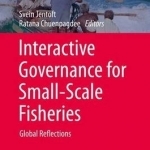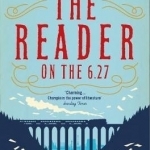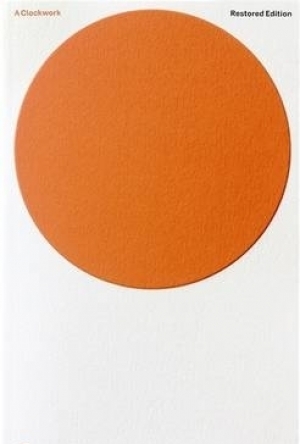On Literary Worlds
Book
Although literature is not a technology, the historical models literary scholars use to describe it...

Progress in Industrial Mathematics at ECMI 2014: 2016
Vincenzo Capasso, Giovanni Russo, Giuseppe Nicosia and Vittorio Romano
Book
This book presents a collection of papers emphasizing applications of mathematical models and...

5-Minute Sketching: Architecture: Super-Quick Techniques for Amazing Drawings
Book
Sketching has become very popular. In more than 60 cities around the world, from New Jersey, San...
art leisure

Virgin Atlantic
Travel
App
So here it is – your brand new Virgin Atlantic mobile App. We’ve heard your feedback, we’ve...

Camp Pokémon
Entertainment
App
Welcome to Camp Pokémon! Discover the amazing world of Pokémon with the free Camp Pokémon app...
Samantha Hemsley (2 KP) rated The Reader on the 6.27 in Books
Jun 30, 2019
The unfortunately named (apparently -- I think you have to be a French speaker to really understand the reasoning) Guylain Vignolles is 36, lives alone with his beloved goldfish and works in a job he detests -- operating a book-pulping machine in a publishing factory. Guylain alleviates his resultant mental anguish by rescuing the occasional surviving pages at the end of each shift and reading them aloud to his fellow commuters on the 6.27 train each morning much to their mingled bewilderment and joy. Featuring some wonderful larger-than-life characters such as the classical theatre loving security guard who only speaks in Verse and the reformed alcoholic engaged in a quest to be reunited with his missing limbs and the toilet attendant with a secret talent for writing, this book is quirky and a bit ridiculous in the very best way.
As a fellow book lover, I empathised with Guylain's heartbreak over destroying so many books day in and day out. I can't even bear to write in a book or fold the corner of a page never mind reduce them to a pulp! I absolutely loved the way he attempted to do the books justice by giving what pages he could save an audience. This book is a real testament to the power and pleasure of reading aloud which is something I'm hugely passionate about -- I even wrote one of my university dissertations about the benefits of reading aloud with children.
I also loved its message of how reading can unite people, despite it being seen as a generally quite solitary or even introverted activity. Through his reading, Guylain finds himself being invited to do regular readings at a care home, much to the delight of the residents and when he finds a USB stick on his usual train seat containing over 70 diary entries, the lonely Guylain might just find that it leads to true love.
As well as being very charming and quaint, the novel manages to avoid becoming trite with its very astute observations and brilliant humour -- often laugh-out-loud funny. The prose is simple but very skillful -- especially the verses concocted by Yvon the security guard. Huge credit must also be given to the translator here. (The book was originally written in French) To translate rhyme into a different language so that it still rhymes and still makes perfect sense in the context can't be an easy feat!
My only criticism is that the book is very short -- fewer than 200 pages. Apparently the author is usually a writer of short stories and this is his first novel. This definitely shows as the ending feels very abrupt and definitely as if it could have done with another 50 pages or so; perhaps even more. I wasn't ready to say goodbye yet! Having said that, the ending was very sweet and it was only its abruptness that prevented it from being 100% satisfactory. I wouldn't quite say that there are any loose ends but it would have been nice to find out a little more about some of the characters and their stories.
Overall though this was a really lovely feel-good read that will appeal to anyone who loves literature and zany but endearing characters. I read one review that said the plot was "outlandish" and the characters "unbelievable" but I believe this reviewer was missing the point. This book champions the escapist qualities of reading and to have a story and characters who perhaps just slightly transcend reality can only elevate the escapism just that bit more. Feasibility be damned, I loved Guylain and his supporting cast members and I think I could easily read this short but sweet little story again and again!

If you’re happy & you know it - Full Version
Education and Games
App
~~~ Full Interactive Song + 9 Amazing Educational Games Inside ~~~ ~~~ Top HD graphics and superb...
Phil Leader (619 KP) rated A Clockwork Orange in Books
Nov 11, 2019
Welcome to the world of Alex, a 15 year old boy living in some unspecified country in an unspecified future time. What Alex enjoys is classical music and ultraviolence. Every night he and his gang terrorise the streets looking for any kind of criminal activity, the more violent the better. They steal, burgle, assault and rape, all for fun.
When Alex is caught he is put in prison and then rehabilitated using an experimental procedure. But what effect will this have on Alex? And will it produce the desired results of preventing the youth turning every night into a time of danger for all.
The first thing any reader notices about the book is that, told from Alex's point of view, he uses street slang throughout. This makes it clear that the young have their own culture and are quite separate from the adults in terms of outlook and thinking. It also makes the reading quite immersive, like learning a foreign language particularly as only a very few of the words are ever explained and must be learned from context. This makes for a steep learning curve at the start of the book but it is worth the effort. The use of slang terms for the violent acts also helps to soften them a little - clearly what Alex does is horrendous but as it is described using these terms it is perhaps not so graphic as it would be otherwise.
Like critics of the film, it would be unfair to focus purely on the violence. The book is divided neatly into three parts. In the first we follow Alex as he perpetrates a number of terrible crimes. The second part describes his experiences in prison and is rehabilitation. The third what happens when he returns to society.
Burgess is clearly trying to make a number of points about individuality and state control of its citizens, and a fairly heavy handed job he makes of it too. But this is a slight volume - the paperback I read ran to a mere 140 pages - so there is little time for subtlety.
I would say the first two sections of the book were the best. The third section suffers a little from being rushed - it would have been better to have more insight into the world of the 'new' Alex - and also of the story being driven by coincidence after coincidence. This really did make the book seem like a sort of dream sequence where previous characters appeared and suddenly took on new meanings. In fact what it reminded me most of was the interrogation sequence in Alfred Bester's The Demolished Man. This did detract from the story for me but not enough to do much damage to the tale. The ending is particularly strong and positive, in a book full of desperation it strikes the perfect counternote.
For anyone interested in the social side of 'science fiction' this is definitely worth reading. A morality tale for the future.
Rated: Frequent and extreme violence

Interactive Governance for Small-Scale Fisheries: Global Reflections
Svein Jentoft and Ratana Chuenpagdee
Book
Drawing on more than 30 case studies from around the world, this book offers a multitude of examples...

Coloring Book for Adults Now
Lifestyle and Entertainment
App
**Coloring Book for Adults. Daily FREE content updates!** Start your anti-stress therapy in one tap,...


